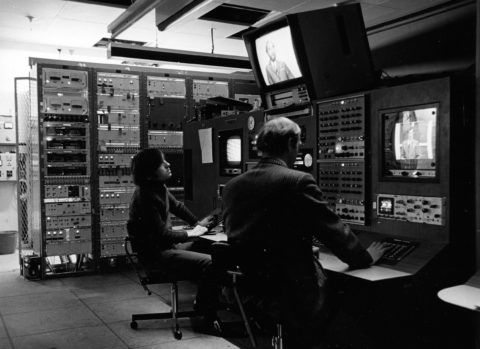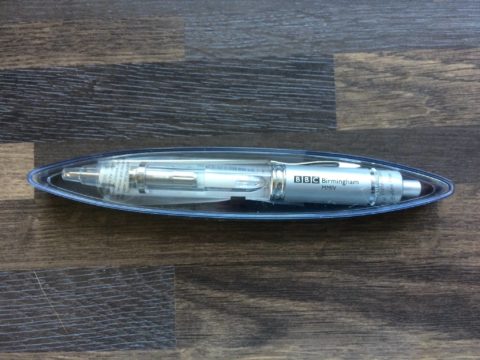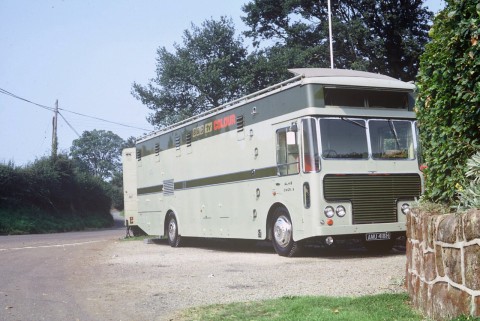
Visiting Droitwich with Martin Watkins, who was later Quality Monitor. Copyright, Colin Pierpoint, no reproduction without permission.
Part of the comms work was out on the road. I did many Sound Lines Tests. These were on the day before a broadcast, which was usually live, but lines were also used for VTR (Videotape recording in London or other regions). From my diary, I tested lines in Birmingham Cathedral, Cheltenham Racecourse, Rugby, Wolverhampton Football Ground, Nottingham Forest Football Ground, Coventry, Ipswich {which at the time was of course in the Midland Region. (Only the BBC could do it this way)}, Hereford Cathedral, Hanley Queens theatre, Villa Park, Moseley Football Ground, Edgbaston Cricket Ground, and Birmingham City. Most of these I tested many times. I liked to take the “self drive car” then if it broke down it was not my fault. (see below!). At that time the lines were provided by the Post Office, later to separate as British Telecom. For a lines test the BBC engineer met a PO man usually with a cable coming down a telegraph pole, or from a hole in the ground. We did have some comms engineers who were not too good on the Comms switchboard (EMX); in one lines test I suddenly heard Stan Smith’s voice (the ACSE in the Comms Centre). He had been talking on the phone to someone else in Birmingham, so I said “Hello Stanley”. He asked Where are you? I said “Would you believe, standing in a flowerbed in Peterborough?”
As I mentioned above, we also did the radio links to get the television signals out from the OB to a BBC centre. Amongst others I did Coventry Locano, Derby FA cup, Dunstable mid-point (where you receive the signal and pass it on to the next radiolink site). Ipswich Town, Norwich City, Moseley Rugby Ground. The Comms Supervisor was often in the Sutton Coldfield OB room receiving signals from dishes on the top of the mast. There was a lovely catering woman there, who would ring me at Pebble Mill to take my order for the next day, and then bring my meal into the OB room on a tray!
When reporting on site at Sutton Coldfield, I often had a chat to the transmitter staff and got to know some of them quite well. They had a monitoring problem there because it was difficult to get a quiet signal with all the RF (Radio Frequencies) around at high level. At the time their Radio 3 transmitter drive occasionally made a low frequency rumbling noise, so we had an arrangement that it was all right for them to ring me at home to listen and check for them. My equipment was nothing special, but I did have a clean signal. They also encouraged me to ring their MIC (Monitoring Information Centre) whenever I heard the fault.



